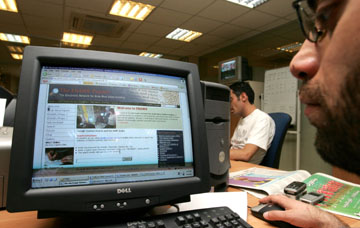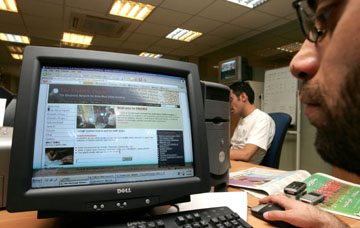Jordan’s Court of Cassation, the country’s highest judicial authority, issued an opinion last week stating that Web sites can be classified as “publications” and recommending that the Press and Publications Law be extended to online news sites and other electronic media. This decision, while not yet the law of the land, sets a legal precedent that lower courts can reference in future rulings, Jordan Bar Association official Ahmad Ghannam told The Jordan Times.

The ruling also lays the groundwork for a government panel to produce guidelines for explicitly incorporating electronic media in the Press and Publications Law, according to local news outlets. If the press law is widened, Jordan will join Iran, Tunisia, and Syria in extending press law provisions to electronic media. The Iranian, Tunisian, and Syrian models do not bode well for Jordan’s journalistic community.
To subject electronic media to Jordan’s repressive Press and Publications Law is highly problematic. For one, the press law requires all publications to register with the Press and Publications Department of the Ministry of
Of the many other problematic aspects of the Press and Publications Law, Article 38 might have the most chilling effect online. Article 38 prohibits publication of anything that “denigrates” religion or religious figures in “any form.” It also prohibits “affronts” to individuals. The vagueness of this article would certainly lead to self-censorship online (as it has in print) and result in politicized prosecutions.
A more quotidian concern is what the many journalists who have flocked to the Internet to write what the press law prevents them from writing in print publications will do once their online work is subjected to the press law provisions. Ghaith Adayleh, CEO of the popular Jordanian news Web site Khaberni, said in an interview with The Jordan Times that contributors will likely write for sites that operate outside Jordan. “If what the government is doing aims to curb the electronic media, this will lead many journalists as well as citizens to post their opinions and comments on international media.”
Many other questions arise. Will the Jordanian Journalists’ Syndicate be given an opportunity to weigh in on the press law revision? What about other experts and practitioners? What will constitute a “publication?” Will it be anything posted online, including blogs, or will there be more nuanced criteria? What about messages posted on Facebook or Twitter? What about reposting third-party material? What about third-party comments? Will the simple act of accessing such material also be criminalized?
Facing all these questions, the government has both an obligation and an opportunity. It should reform the Press and Publications Law, not to extend the outdated and restrictive standards that apply to print publications, but to bring the law in line with international standards that protect freedom of expression in all venues.
Mohamed Abdel Dayem is CPJ’s program coordinator for the Middle East and North Africa.
